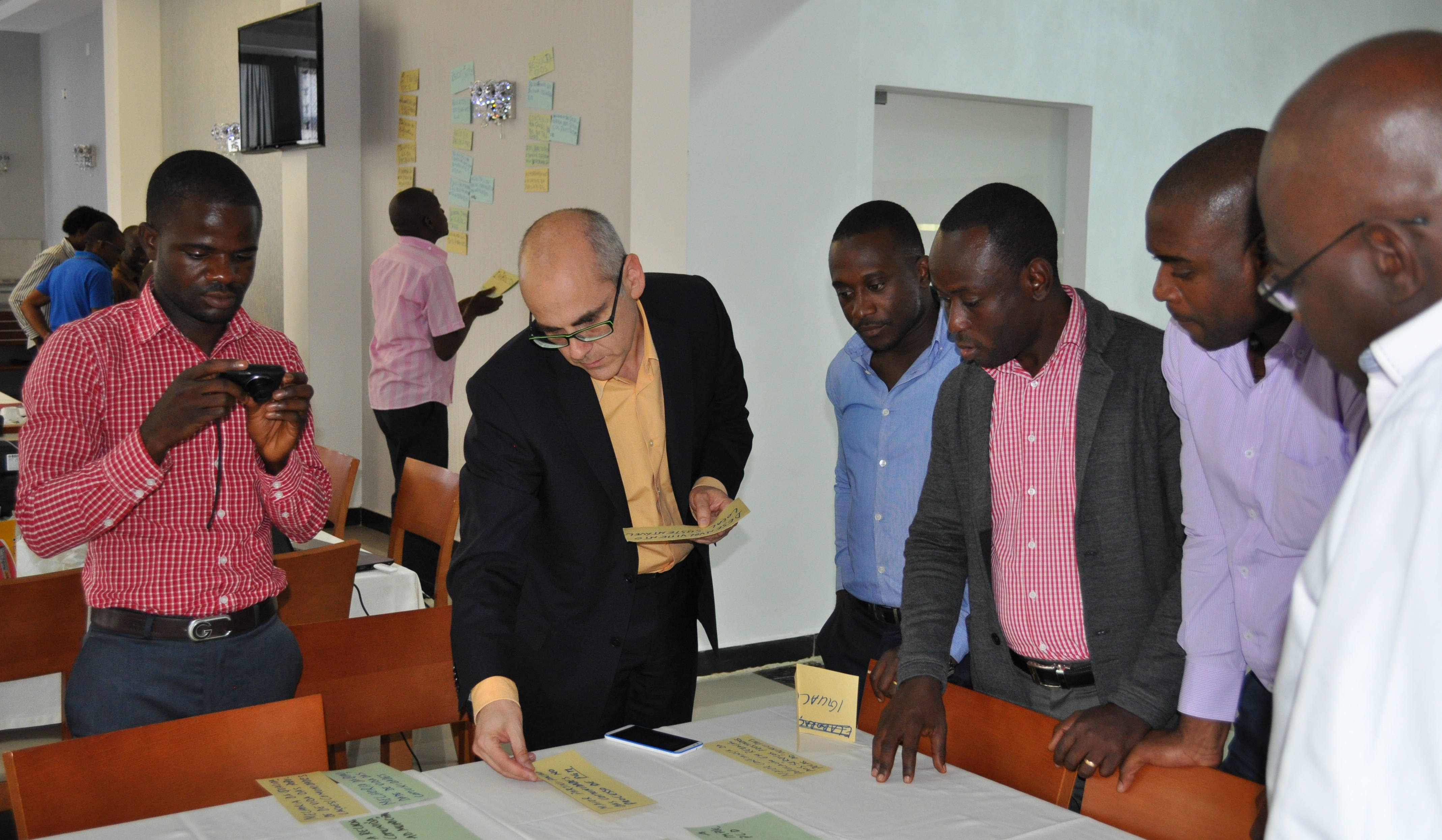-
18 May 2017
Category : Opinion
Weak strong institutions
Public policy evaluation in Latin America.
 Miguel Ángel Lombardo at the Evaluation Workshop in Angola.
Miguel Ángel Lombardo at the Evaluation Workshop in Angola.Some time ago I had the chance to talk to an investigation official of the national police of a Latin American country at a meeting I was invited to attend as an evaluator.
A great deal is being done in this area through the technical support of institutions, including Spanish ones, whilst scrupulously avoiding the application of “models” from other countries to a national reality that is totally foreign and extremely complex. The United States, for example, has focused particularly on the issues of drugs and youth gangs. In Spain, we have great experience, and here I can mention, for example, the work done in Guatemala to reduce the number of crimes against life and amount of violence against women.
The official I was speaking with said that, in his country, the police are under great stress, that they’ve been doing their job under great pressure for several years, and that many of them would like to leave the field and get a university degree or do something else or, at least, have a better system of shifts that would give them more down time.
He also told me that they had learned that a small number of criminals commit the vast number of crimes, and that if there are, say, 10,000 homicide victims annually, these could be attributed to some 1,000 aggressors. That is, with a little investigation, with good police instincts and better coordination between prosecutors, judges and law enforcement, the problem of citizen insecurity could be handled much better.
“Don’t leave us on our own”, he said, worried about the low level of support they had internally and the idea that these issues could cease to be a cooperation priority. That’s probably the way things are seen by some people who are tired of supporting an institution that we can characterise as weak-strong-absent-present.
Weak in terms of the strategic direction, given that many bodies work on the same issues in an uncoordinated way: criminal investigation, prosecutors, judges, prisons, institutions that fight against organised crime… Strong, because at times these institutions think the only acceptable answer for society is the incarceration of young people; this accomplishes nothing except filling up prisons, where, on the other hand, there are few rehabilitation programmes to help them abandon the cycle of violence. Absent, because the police and judges are never where they’re needed, and they don’t reach many places where criminals are still being lynched. And, lastly, present, because the government is eager for media coverage and to demonstrate that citizen insecurity is its great priority, without us knowing what that actually means.
Public policy evaluation
That’s why it’s necessary to improve our diagnoses by using tools like public policy evaluation to be able to improve programmes and address these challenges that generate such contradictory responses from institutions.
And we have an extensive experience working with many institutions to be able to introduce evaluations as a requirement in implementing cooperation programmes for institutional reform. And we have also generated the necessary trust, which will enable us to conduct not only qualitative analyses but also quantitative ones, with baselines and surveys after several years.
At first glance, it seems easier to quantify the impact of aid in the case of social programmes or poverty-reduction programmes, which are where these types of evaluations have traditionally been done. However if we observe carefully from the institutional standpoint and, more specifically, from one of capacity building, there are many interesting options.
If the programmes are designed from the start with the objective of being evaluated, we could predict their impact on police performance; to give an example, the impact of one type of training or another, and eventually, the impact this has on institutional change and crime reduction, which is the important thing. It would also be a great advance, and we’re capable of doing it, to learn what effect the training of criminal investigation units has on the impunity variable. That is, in terms of how much our cooperation helps in terms of solving cases and the ability to bring them to trial.
That way the institutions themselves will be more aware of the limitations and opportunities that exist for carrying out larger-scale reforms and for gradually building a new culture of institutional development.
Miguel Angel Lombardo works at FIIAPP on South-South cooperation for public policy evaluation in Latin America.
The views and opinions expressed in this blog are the sole responsibility of the person who write them.




